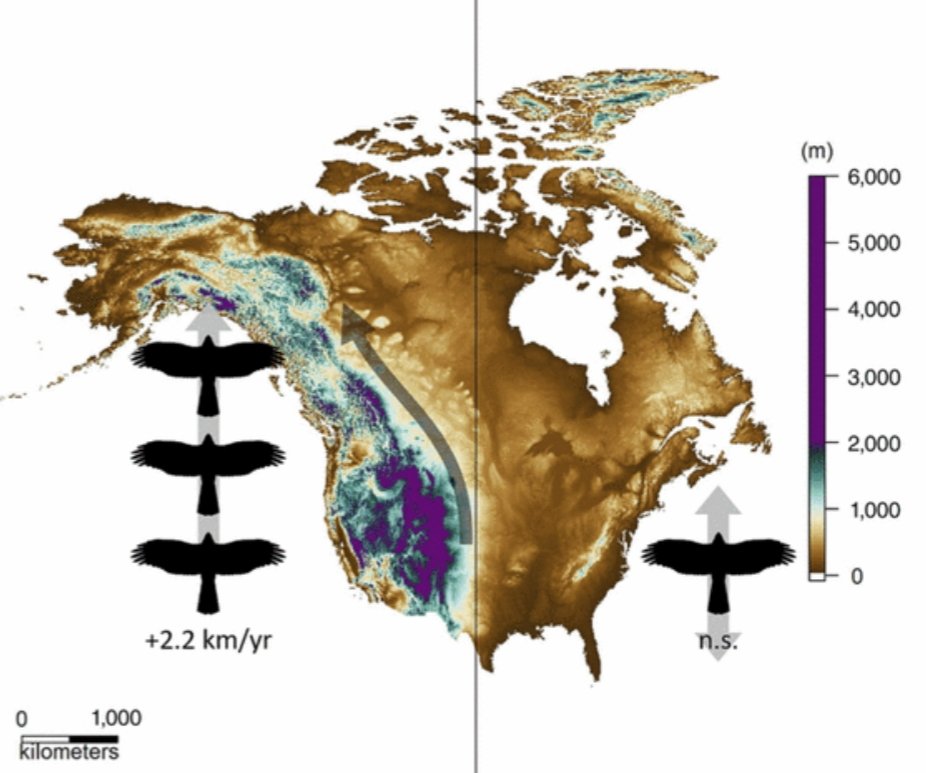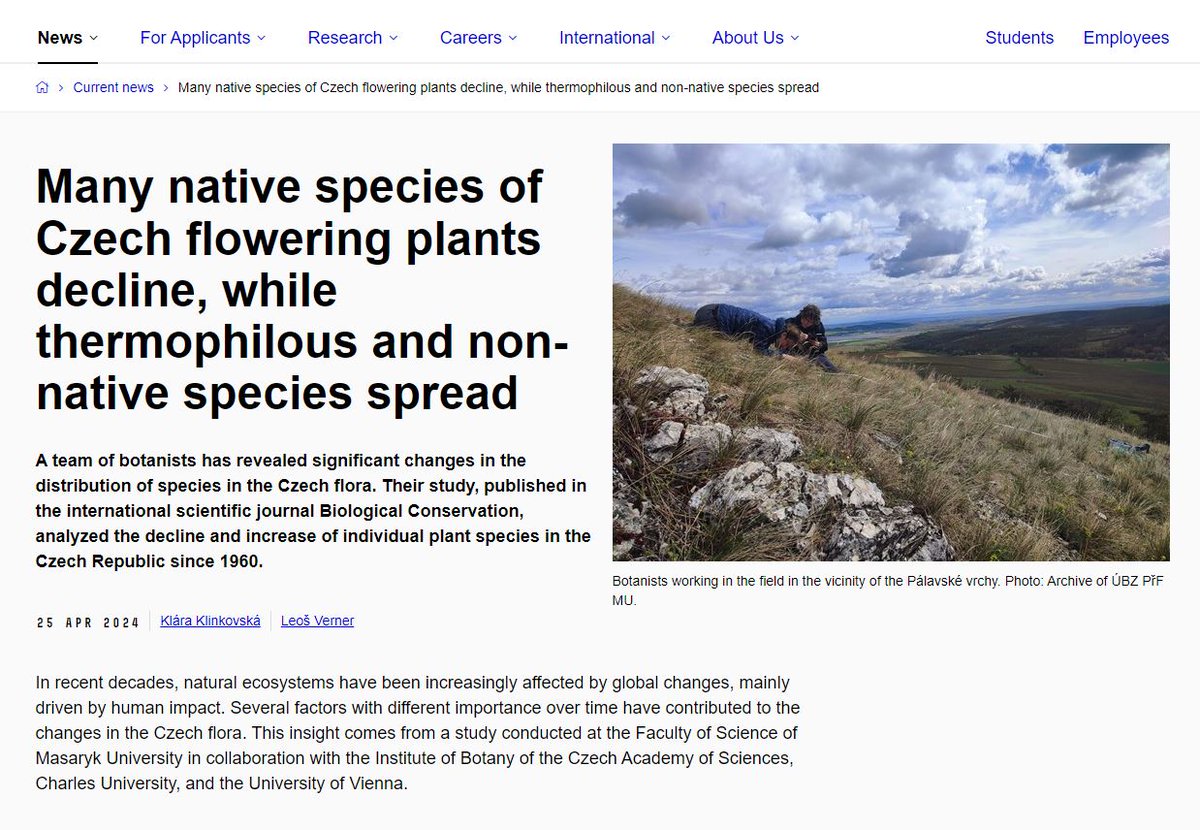
Petr Keil
@r_you_cereal
Researcher at Faculty of Environmental Sciences, Czech University of Life Sciences in Prague. Double dad, synthesizer nerd, runner. 🇺🇦🏳️🌈🇪🇺
ID: 1412996874
https://petrkeil.github.io 08-05-2013 14:36:56
551 Tweet
1,1K Followers
227 Following


The lack of evidence for declining local diversity through time must be because everything is homogenizing, leading to larger-scale losses. Right?! Nope, says our analysis of 500+ meta-communities through time published Science Advances iDiv Biodiversity Research science.org/doi/10.1126/sc…

Fancy doing PhD in vegetation science in Vienna with Franz Essl + Stefan Dullinger (with us as external collaborators)? 👇

Hledáme technika pro zpracování dat, na poloviční úvazek FŽP ČZU v Praze. Pružná pracovní doba, mezinárodní kolektiv. Nutná Angličtina, zájem o přírodní vědy, schopnost práce s daty Excelu. Výhoda je GIS, R, Python. Detaily a instukce k přihlášení: petrkeil.github.io/news/2024/03/0…
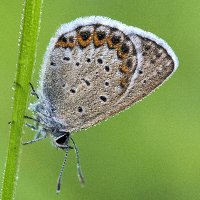
I used multi-response phylogenetic mixed models to quantify the link between plant functional traits and range size/shape in European trees. The OA article is available here: doi.org/10.1111/geb.13… Thanks to GEB Journal editors & reviewers!
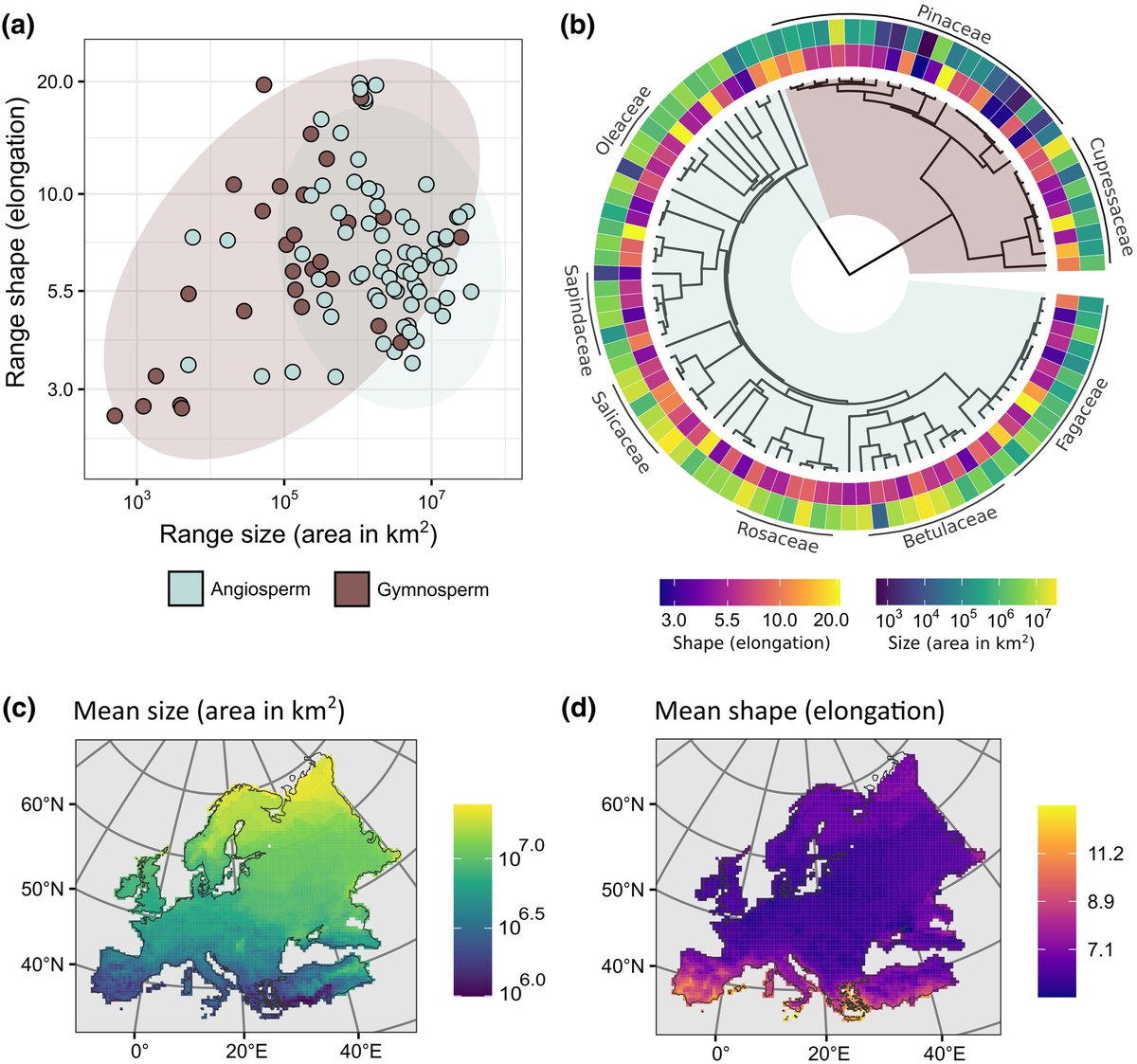
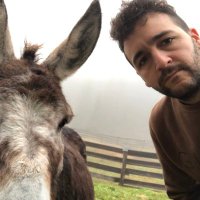
First paper related to my project #COCOS out in Journal of Ecology! We used time-series of plant biomass from the Biodiversity Exploratories Research to assess how biodiversity🌱relates to grassland resistance and recovery under extreme drought🔥 Marie Skłodowska-Curie Actions Department of Spatial Sciences doi.org/10.1111/1365-2… More info👇


New preprint: Big analysis of recruitment and loss, and their derivatives, in US birds by François Leroy and @majarzyna. Species which are doing well may still undergo decline of recruitment. Preventing loss may not be enough, we also need to enhance recruitment. ecoevorxiv.org/repository/vie…

New preprint: Our attempt to link local individual-level ecological processes (Allee effect, Janzen-Connell hypothesis) with different rates of species loss at different spatial scales (thnx to Adam Clark, François Leroy, Vojtěch Barták): biorxiv.org/content/10.110…

On the blog🔎 If #biodiversity begets stability, will more diverse #grasslands be better at resisting & recovering from the effects of drought? ManueleBazzichetto jecologyblog.com/2024/04/15/bio…
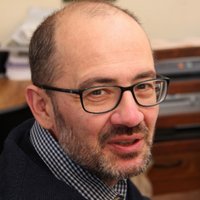
Our Report article on ReSurveyEurope, a new and the largest European database of vegetation data from permanent plots and resurvey studies, has just been published in the Journal of Vegetation Science doi.org/10.1111/jvs.13…… @jvegsci IAVS Vegetation Science Blog #vegetation #biodiversity
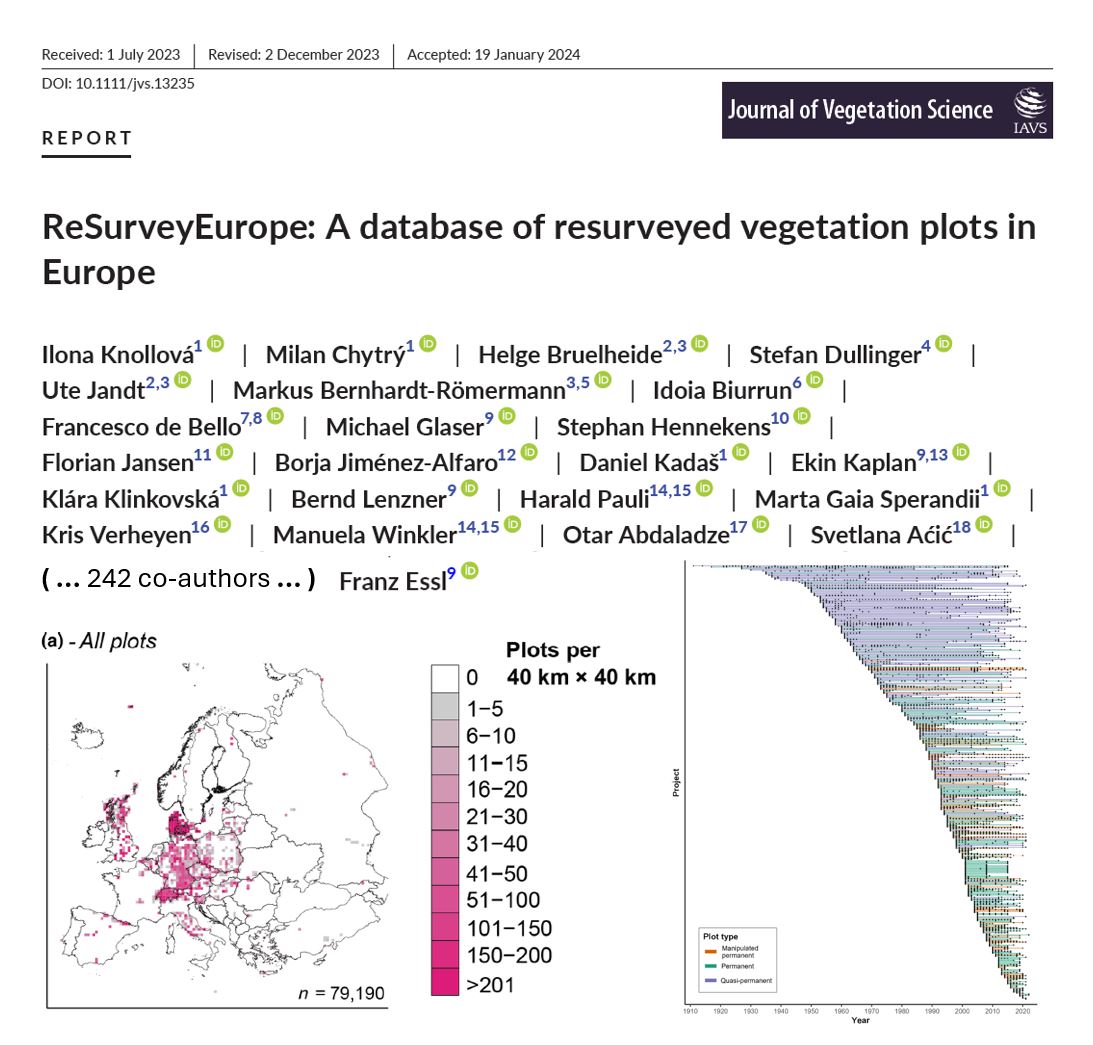


Value quality over quantity: The state of academic publishing in 3 graphs, 6 trends, and 4 thoughts dynamicecology.wordpress.com/2024/04/29/the… prostřednictvím Dynamic Ecology


Job offer! We are looking for a *postdoc* in biodiversity science, macroecology, ecol. modelling, stats. In Prague, Czech Republic, FŽP ČZU v Praze, 2 years (with possible extension), ERC-funded, 66,000 CZK/m gross. More info and application instructions: petrkeil.github.io/news/2024/06/1…

Living Planet Index "suffers from several mathematical and statistical issues, leading to a bias towards an apparent decrease even for balanced populations. The claim that vertebrate populations declined by 70% since 1970 is thus unsubstantiated". Source: communities.springernature.com/posts/the-livi…

Is fragmentation bad or good for biodiversity? Yes! We use a classical competition-colonization metacommunity model to show that fragmentation can increase or decrease diversity depending on the total amount of habitat in the landscape. iDiv Biodiversity Research Universität Halle (inaktiv) nature.com/articles/s4155…




